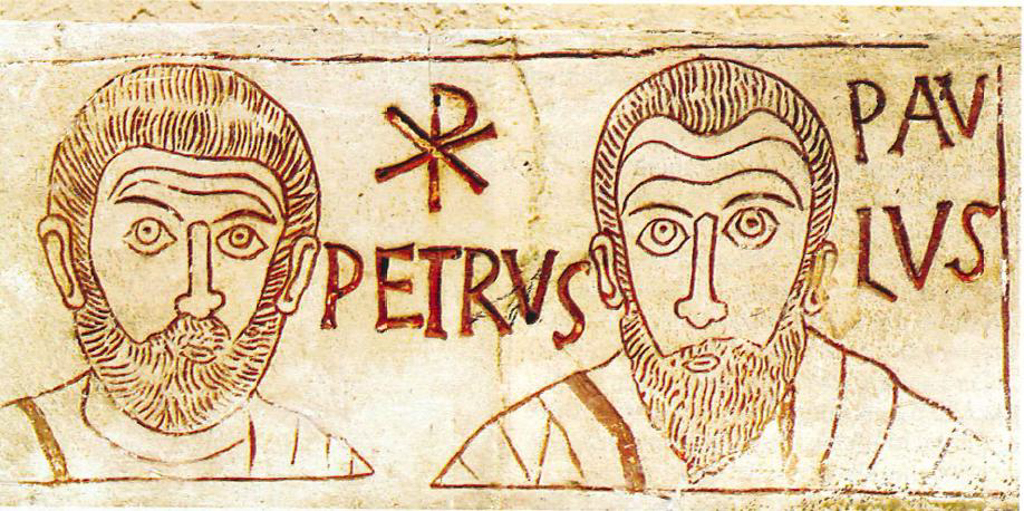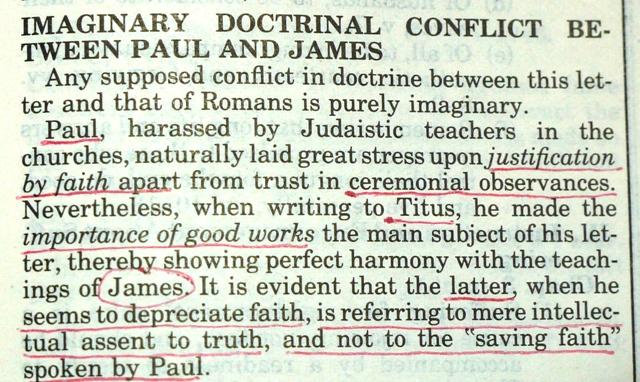“I believe that God’s law is a ‘schoolmaster’ that brings me to Christ. I do not perfectly walk with Christ yet, so I need my “schoolmaster”, hence I strive to obey the Ten Commandments.”
The above quote comes from a well-meaning Christian and I respect his passion to love God and to obey God’s commandments. I have nothing against that. But I believe the Apostle Paul meant something different in Galatians 3:24 and not exactly the way this Christian has interpreted this particular verse.
So, let’s answer the question: Is the law our schoolmaster for Christians of today which we all need to strive to obey? Let’s study several points on this issue.
Here’s the actual verse in Galatians 3:24 in the King James Version: “Wherefore the law was our schoolmaster to bring us unto Christ, that we might be justified by faith.”
First, please take note that Paul said that the law was their schoolmaster. This word “schoolmaster” comes from the Greek word, paidagogos, which meant a slave tutor or a guardian. This tutor or guardian took care of training and guiding a child heir until the time the child’s father gives him his inheritance. That’s the “schoolmaster” (KJV) during those days in their culture. In other words, Paul was saying that the law (Greek, nomos) was their schoolmaster (Greek, paidagogos). Please take note of the temporary nature of this law which was their schoolmaster, guardian or slave tutor! It was not meant to be the child’s tutor forever!
Secondly, please take note that this particular law WAS (past tense!) their “schoolmaster” according to the Apostle Paul (check again verse 24). When Paul said that it WAS their schoolmaster, he meant that this particular law no longer was their schoolmaster when he wrote this epistle to the Galatians sometime in 49-50 AD.
Thirdly, please also take note that Paul said it was THEIR schoolmaster. Paul no longer considered this law as their schoolmaster when he became a Christian. Previous to this, he was a devout Jew and a pharisee of the pharisees who excelled in Judaism.
Fourthly, what was this law that is under discussion here? Galatians 3:10 tells us it was the “book of the law”—a clear reference to the Law of Moses, the whole first 5 books of the Old Testament or the Torah. This law was their paidagogos—schoolmaster. Clearly, the whole Law of Moses was for Israel and not for Christians. It was “theirs”—not “ours.”
Fifthly, Paul said that the purpose of this temporary law (schoolmaster) was to eventually bring or lead him and his fellow Israelites to Christ — the real Master and Teacher!
Let’s us now please take note of the next verse: “But after that faith is come, we are no longer under a schoolmaster” (KJV Gal. 3:25).
Here are a few other translations of Galatians 3:25:
- New American Standard Bible: “But now that faith has come, we are no longer under a tutor.”
- New International Version (old version): “Now that faith has come, we are no longer under the supervision of the law.”
- New International Version (2011): “Now that faith has come, we are no longer under a guardian.”
- New Living Translation: “And now that the way of faith has come, we no longer need the law as our guardian.”
One thing is clear here in these various translations: Faith has come. Therefore, the temporary guardian is no longer needed. Justification by faith in Christ has come when Christ came and Paul showed that no man could be justified by the works of the law (Gal. 2:16). The schoolmaster was no longer needed. The slave tutor was no longer needed. And this paidagogos which was no longer needed was the law! Why? Because Christ has come! (Paul further elaborates this point in Galatians 4:1-11.)
Please take note that whatever particular law was being referred to by Galatians 3:25, Paul clearly stated that they were no longer under that law or schoolmaster! According to Paul, now that faith HAS COME, there was no longer any need for that law as their guardian. Now that Christ himself was with them, they no longer needed a tutor, a guardian or a schoolmaster (Greek, paidagogos). Christ was with them already—the Master himself has come!
So what law was introduced 430 years later after the Abrahamic covenant? Please read Gal. 3:17.
“What I mean is this: The law, introduced 430 years later, does not set aside the covenant previously established by God and thus do away with the promise.” (Galatians 3:17)
It was clearly the Law of Moses that was given at Mt. Sinai. (Please read Exodus 19 trough 24 thoroughly—from the proposal to the ratification by blood of the old covenant. And yes, it included the “ten words.”)
Was this law “added?” Yes. It’s quite clear. Please read Galatians 3:19a.
“What, then, was the purpose of the law? It was added because of transgressions until the Seed to whom the promise referred had come” (Galatians 3:19a).
So we see that this Law of Moses was “added” and that it was temporary in nature until the coming of the Lord Jesus Christ. Some will argue that it was only the rituals or the sacrificial laws that were added but that is not accurate. The sacrificial laws, rituals or ceremonial laws were not added. These were all part and parcel of the laws given at Mt. Sinai. It was the whole Law of Moses that was “added” according to Paul. The Abrahamic covenant already existed and 430 years later, the Law of Moses was added.
Are Christians under this law? Is this law our “schoolmaster” or tutor? Do we need this schoolmaster or shall we instead look to Jesus Christ? Please read again Gal. 3:24-25 .
“So the law was put in charge to lead us to Christ that we might be justified by faith. 25 Now that faith has come, we are no longer under the supervision of the law.” (Galatians 3:24-25)
This is clearly a reference to 430 years later after the Abrahamic covenant (Gen. 12) which leads us to Mt. Sinai where the Law of Moses (Exo. 19-24) was given! It was a temporary law that came and went and ended when Christ came.
The Abrahamic covenant was never abolished and continues up to now and we are heirs of that promise as Paul explained (Gal. 3:29). The Law of Moses is not our “schoolmaster” or “tutor” as Paul clearly shows here. This Abrahamic covenant is based on better promises—a better covenant (the new covenant) than the one that was abolished.
In context—in Galatians 3—this particular law cannot make them righteous. That was the issue that was being discussed by Paul. The righteous shall live by the faith of Jesus Christ and no one will be declared righteous by the obeying this particular law (Gal. 3:1-14, Gal. 2:16-17)! Please take note how Paul was filled with righteous anger because of this wrong teaching that was spreading among Christians in Galatia. He called them “foolish Galatians!” (Galatians 3:1). Why? What was this wrong teaching all about? Just read through Galatians 3 and you’ll be surprised! It was salvation by works of the law!
Lest I be misunderstood, I am not against the law. There is a law which Christians should follow. But definitely it’s not the package of laws that was called the Law of Moses. Rather, it is God’s law even before the giving of the Law of Moses. Paul called it the “Law of Christ.” These are laws which do include many parts of the Law of Moses which can be categorized as moral laws (not animal sacrifices or rituals).
It is truly exciting and liberating to study Paul’s letter to the Galatians! May the Lord give us all full understanding of the good news! It truly is good news!
For further reading:
Photo credit: www.telegraph.co.uk






